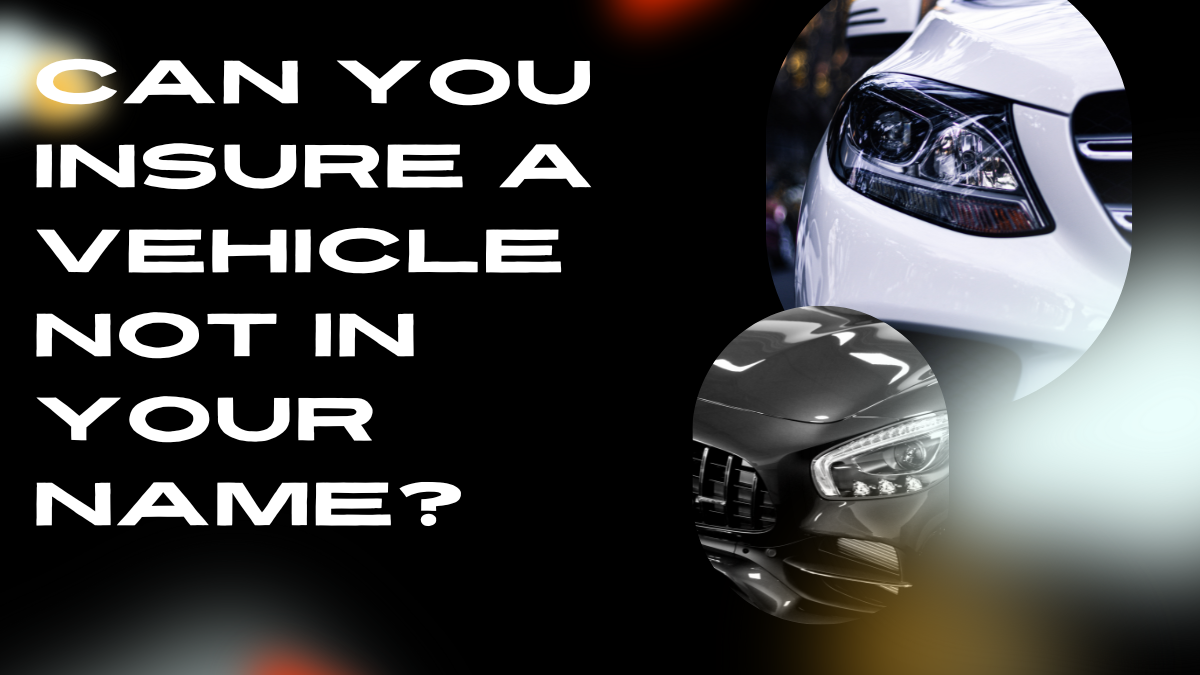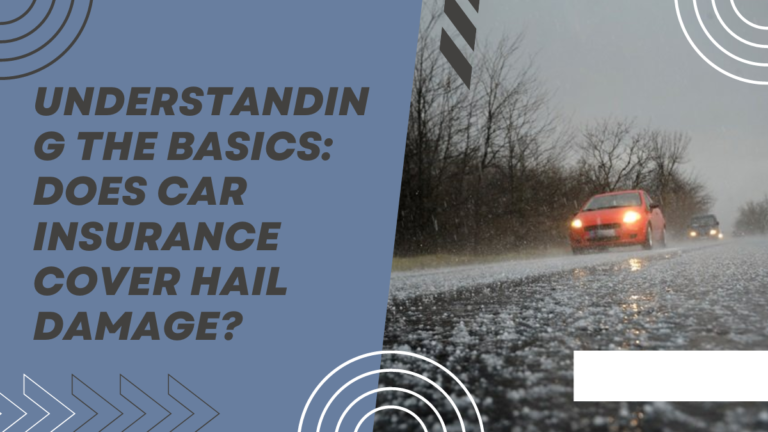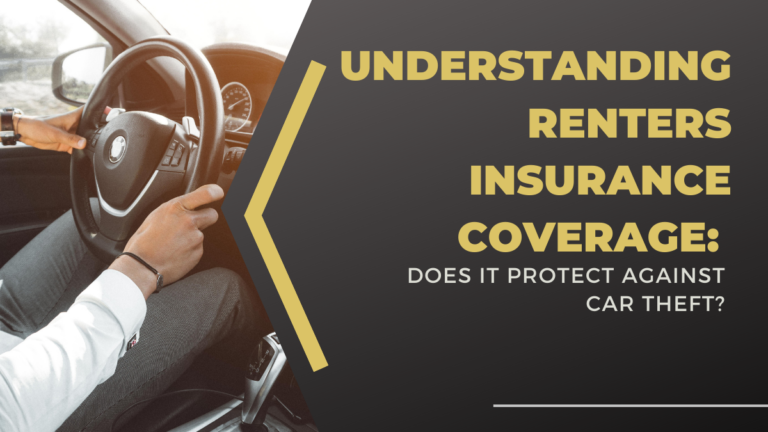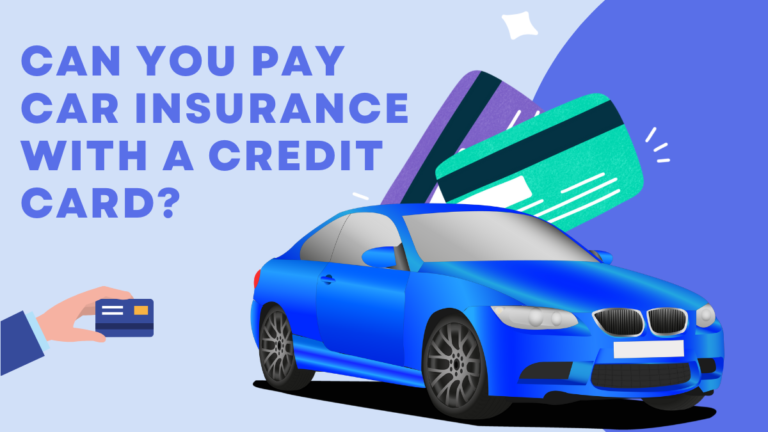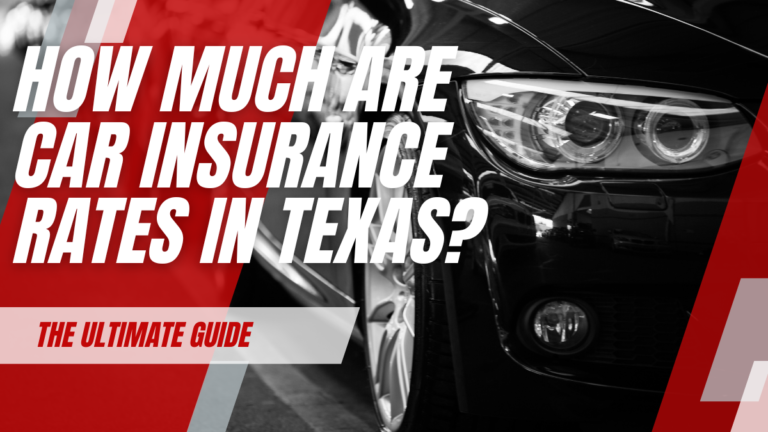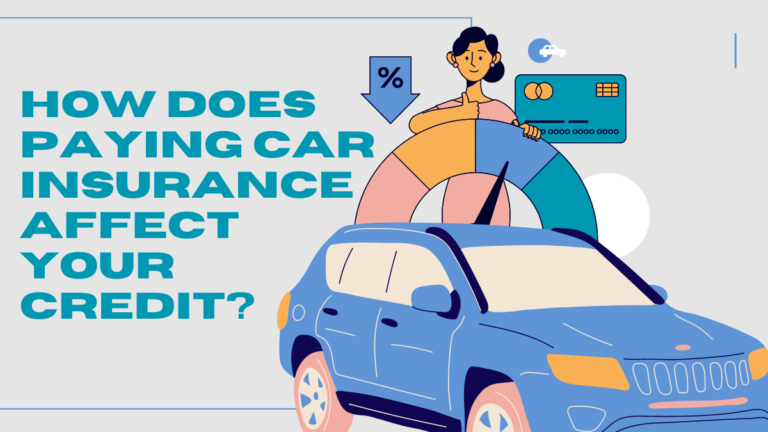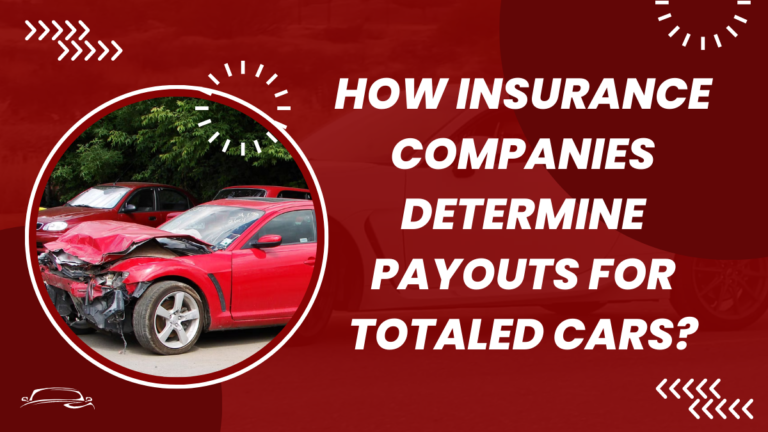Understanding Car Insurance: Can You Insure a Vehicle Not in Your Name?
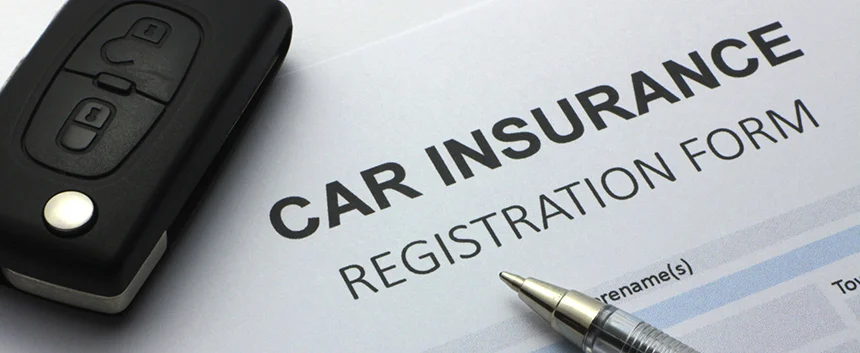
Are you ready to embark on a journey of car insurance? Buckle up, as we’re diving deep to insure a vehicle not in your name! Whether you’ve wondered about lending your car to a friend or are considering buying one for someone else, understanding the ins and outs of this topic is crucial. Join us as we explore the fascinating realm of car insurance policies, legalities, and practicalities in this gripping blog post. Trust us, by the end, you’ll be equipped with all the information needed to make informed decisions and take charge of your vehicle’s protection. So let’s rev our engines and get started—your expertise awaits!
Table of Contents
What is Car Insurance?
Car insurance is a legal requirement in most countries. It protects you and other drivers involved in an accident. Car insurance can protect you against financial losses, such as: medical expenses, loss of income, and damage to your vehicle.
In some cases, it may also cover injuries you or other drivers suffered.
It’s important to understand exactly what car insurance covers and how it works. This article will explain all the basics about car insurance.
How much does car insurance cost?
The price of car insurance varies depending on your age, driving history, location, and type of car. The cheapest policies are available for young drivers without any accidents record. Policies for more experienced drivers (with fewer accidents) are typically more expensive. The price also depends on the make and model of your vehicle.

Most insurers offer a range of rates that offer good value for money. You can compare rates using a free online tool like Insure Wiki or by calling an insurer directly.
Important points to remember when shopping for car insurance:
- Shop around – comparison websites like Insure Wiki can help you find the best deal on car insurance by comparing quotes from different insurers.
- Don’t forget comprehensive and liability coverage – these are two key aspects of most policies that protect you financially if something goes wrong while you’re driving. Comprehensive Coverage covers costs like damage to your vehicle irrespective of who was at fault in the accident; liability coverage covers you financially if someone is sued for damages because of an accident on your vehicle.
- Check the terms and conditions of your policy – some policies have minimum coverage requirements or exclusions, meaning that you may be unable to claim on them if something goes wrong.
- Consider adding a riders policy – this protects you and anyone else who uses your car, such as your friends, family members, or customers. Riders policies typically have lower premiums than traditional car insurance policies.
- Ensure you have adequate Uninsured Motorist Coverage – this covers losses in the event that you’re involved in an accident with someone who wasn’t insured.
Types of Car Insurance
There are a few different types of car insurance, and each has its own benefits and drawbacks. Below we’ve outlined the most common types of car insurance, with explanations of what they offer.
- Personal Auto Insurance:
This type of insurance covers you and your vehicle if you get into a car accident. The main benefit of personal auto insurance is that it’s usually cheaper than other types of car insurance. There are, however, several drawbacks to personal auto insurance. First, it doesn’t cover you if someone else was driving the car that got into the accident—you’ll need separate liability coverage for that. Second, personal auto insurance doesn’t always cover damage to other people’s cars, so make sure to check the policy details carefully.
- Employee Auto Insurance:
This type of insurance is often mandatory for employees of companies with physical offices–such as law firms or banks–where cars are typically parked on company property. Employee auto insurance usually covers you and your vehicle if you get into a car accident while on company property (or while driving in connection with your job).
Like personal auto insurance, there are several drawbacks to employee auto insurance. First, it doesn’t always cover damage to other people’s cars—you’ll need separate liability coverage for that. Second, employee auto policies usually have much higher premiums than personal policies do—so make sure you’re getting a good deal before signing up. Third, employee auto policies don’t cover theft or vandalism—you’ll need separate coverage for that.
- Collision Coverage:
If your car gets into a car accident and is partially or completely damaged, collision coverage will help pay for the damage. This coverage can be important if you’re using the car for personal purposes and don’t have personal auto insurance—it can help cover the cost of repairs to the car. Collision coverage is typically mandatory for all drivers, but it can vary depending on your state’s laws.
What’s Included in Car Insurance?
One of the main benefits of car insurance is that it covers a wide range of potential expenses. Most policies include coverage for property damage, injury liability, and whether or not you’re at fault in an accident. You may also find coverage for medical expenses and loss of use of the vehicle.
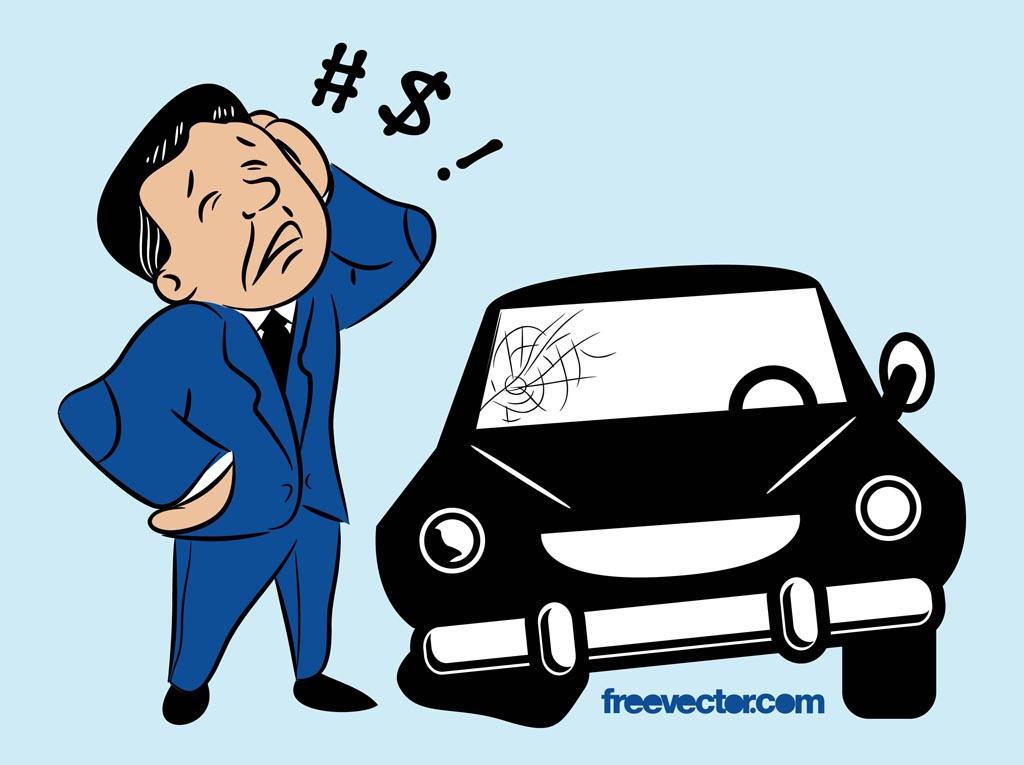
How Does Car Insurance Work?
If you have a car that you don’t own, you can still get car insurance. This is usually called “non-owner insurance.” The best way to do this is to get a policy in your name with the same insurer as your driver’s license.
If you don’t have a driver’s license, you will need to get an operator’s license or other form of identification that shows you are the owner of the vehicle. You can then go to the insurer and have them issue a policy in your name.
Who Can Be Insured?
Insuring a vehicle not in your name can be a great way to save money on car insurance. If you’re the registered owner of the vehicle, you’re usually the only person who is covered under your policy. However, if you give someone else permission to use the vehicle, they can be insured under your policy. This is especially helpful if you’re temporarily out of town and need someone to take care of the car. You can also insure a rental vehicle if you’re not the rental company’s primary driver.
What are the Limits of Car Insurance?
There are limits on car insurance coverage, both in terms of what you can insure and how much you’ll pay. Here are some basics:
- You generally cannot insure a vehicle not in your name. This includes cars you lease or rent, as well as cars you borrow from family or friends.
- Your car insurance policy will generally only cover damage to the car that was done while it was in your possession or while it was being driven by someone who is legally authorized to drive it.
- Damage to other property, such as fences, homes, parked vehicles, etc., is typically not covered by most car insurers.
Is It Possible to Insure a Vehicle Not in Your Name?
It’s not unusual for people to insure vehicles not in their name. There are a few reasons for this. One reason is that it can be cheaper, because the insurance company won’t have to pay as much in claims and premiums. Another reason is that it can give you more peace of mind, knowing that if something happens to your vehicle, the insurance company will be able to take care of it. However, there are some things to keep in mind when insuring a vehicle not in your name.
One thing to keep in mind is that if you register the vehicle in someone else’s name, the person who registered the vehicle is responsible for any accidents or claims that occur on it. If you plan on insuring the vehicle under another person’s Name, make sure you have full ownership of the car and responsibility for any accidents or claims that occur on it.
Another thing to keep in mind when insuring a vehicle not in your name is that you will still be responsible for all of the payments related to the vehicle, including car insurance, gasoline, and registration fees. If something happens to the car and you aren’t liable for it, the insurance company may try to get those payments from whoever is actually liable for them – which could be you if you’re listed as an owner on the car’s registration paperwork.
Conclusion
Although you may not be driving the car, owning a vehicle protected by Canadian car insurance can protect you in the event of an accident. In some cases, you may be able to insure your vehicle not in your name – this is known as third party insurance. Insuring your vehicle this way can help cover damage that is caused while it’s not registered to you or while it’s being used by someone else on your behalf. Speak to an insurance agent to see if this type of coverage is right for you and whether any additional precautions should be taken.
